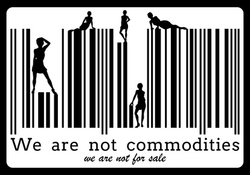The recent news
March 13, 2019
Teachings : Sectoral Regulatory Law 2019-2020

Le droit sectoriel de la régulation bancaire est dans plusieurs situations paradoxales.
La première tient au fait qu'il est radicalement différent du secteur financier et c'est pour cela qu'il est a des institutions distinctes de celui-ci ; et dans le même temps il est en totale porosition avec celui-ci, parce que les banques sont les premiers intermédiateurs financiers et parce que le risque systèmique bancaire se communique immédiatement au secteur financier.
La seconde tient au fait que la régulation tient à la fois sur un milieu fermé prétendant à l'auto-régulation et pourtant dépendant totalement de son adossement à l'Etat, débiteur en dernier ressort, en tant que le lien entre monnaie et banque est intime - ce qui n'est pas le cas de la finance mais de fait les Etats sont dépendant des marchés financiers "tenus" par des entreprises privées de nationalité diverses. Personnes ne mesure l'avenir des crypto-actifs et les crypto-monnaies, du fait de l'acceptation des Régulateurs de réguler les premiers et le refus des Banques centrales d'adosser les secondes.
Avant de se poser la question du But de la Régulation bancaie qui, par définition, est indissociable de la Supervision bancaire (leçon suivante), il convient tout d'abord d'examiner les institutions.
En premier lieu, alors qu'il exprime un ordre public le plus fort, car il garde la monnaie souveraine, longtemps les banques ont prétendu tenir le système en autorégulation et prétendent encore le faire, soit en affrontant le Droit de la concurrence, soit en exprimant des valeurs morales (la "haute banque"), à travers notamment une corporate social responsability, plus forte chez ces opérateurs cruciaux que dans d'autres entreprises, notamment au regard de l'impératif d'inclusion bancaire.
Mais les établissements ont donné lieu à la théorie de l'auto-capture. C'est Napoléon qui le premier a imposé le statut public de la Banque centrale, appelée "Banque de France". Le superviseur bancaire fût longtemps un département interne de celle-ci, dans une division organique, l'un en charge du contrôle des entrées et des changements structurelles (CECEI) et l'autre en charge des sanctions (Commission bancaire). Le continuum entre l'Ex Ante et l'Ex Post justifia la fusion des deux dans l'Autorité de contrôle prudentiel (ACP), modification également entraînée par la condamnation de la France dans l'arrêt rendu par la CEDH Dubus.
Ce changement intervenu en 2010 est de type procédural, prenant acte que ce superviseur étant fonctionnellement un Tribunal, en raison de ses pouvoirs, lesquels étant nécessaires en raison de la mission assignée à l'institution. Mais le changement le plus important est intervenu en 2013 lorsque l'ACP est devenue l'ACPR : Autorité de Contrôle Prudentiel et de Régulation.
Après avoir exploré quelques questions ouvertes :
l'on peut analyser l'arrêt rendu par le Conseil d’État le 13 décembre 2016, Confédération nationale du Crédit Mutuel (CNCM).
Consulter les slides servant de support à la leçon.
Revenir à la présentation générale du Cours.
Consulter la bibliographie générale du Droit commun de la Régulation
Consulter le Dictionnaire bilingue du Droit de la Régulation et de la Compliance
March 8, 2019
Interviews

Référence générale : Frison-Roche, M.-A., Mères porteuses : Une GPA "éthique" ne peut pas exister en Droit français, Interview, Journal Marianne, 8 mars 2019.
Feb. 20, 2019
Teachings : Sectoral Regulatory Law 2019-2020
Consulter les slides servant de support à la leçon.
Revenir à la présentation générale du Cours.
Consulter la bibliographie générale du Droit commun de la Régulation
Consulter le Dictionnaire bilingue du Droit de la Régulation et de la Compliance

Feb. 19, 2019
Publications
Feb. 13, 2019
Publications

Full reference: Frison-Roche, M.-A., Creating "Regulation Law" at Dauphine, in Huault, I. and Bouchard, B. (ed.), 50 years of Research in Dauphine. 1968-2019, 2019, pp. 110-114
Read Marie-Anne Frison-Roche's article (in French)
Read also:
The foreword of the book written by Bruno Bouchard (in French)
Feb. 13, 2019
Teachings : Sectoral Regulatory Law 2019-2020
Consulter les slides servant de support à la leçon.
Revenir à la présentation générale du Cours.
Consulter la bibliographie générale du Droit commun de la Régulation
Consulter le Dictionnaire bilingue du Droit de la Régulation et de la Compliance

Feb. 9, 2019
Publications

► Référence complète : Frison-Roche, M.-A., Pour une conception humaniste du Droit des affaires et de son enseignement, document de travail, février 2019
____
📝ce document de travail a été élaboré pour servir de base à un article publié un an et demie après sa remise, en novembre 2020 dans les 📘
____
Alain Couret est un grand professeur de Droit et un très bon technicien de celui-ci. On se surprend soi-même non seulement à devoir souligner cette maîtrise technique insérée dans l'activité d'enseignement mais à prévenir qu'il s'agit d'une grande qualité. Cette maîtrise technique et l'aptitude à transmettre le savoir juridique par la compréhension de ses principes de base, n'est-ce pas le métier même de professeur ? Si chacun l'admet, alors désigner ainsi Alain relèverait du pléonasme...
Mais l'on entend souvent aujourd'hui que l'art juridique ne serait plus qu'un art de tordre les textes et les mots dans tous les sens, que ceux-ci s'y prêteraient, voire qu'ils seraient faits pour cela, qu'il faudrait apprendre avant tout à argumenter et à contredire si habilement que le tiers spectateur, qu'il soit juge, auditoire ou opinion publique, sera persuadé à la fin que, dans le cas particulier auquel la discussion est cantonné, l'intérêt défendu est bien le meilleur, que c'est bien celui-ci qu'il faut protéger et non pas celui de l'adversaire, qu'il faut rendre effectif cet intérêt singulier-là. Quitte à penser différemment dans le cas suivant. D'ailleurs, il sera possible par la suite de soutenir une autre cause, puisque les situations ne sont jamais semblables. Dans cette façon de faire, connaître techniquement le Droit et ses principes de base apparaît secondaire. La technique ? Cela serait les machines qui s'en chargeront. Les principes ? Ils seraient à éviter, parce que cela ne servira à rien : à chaque cas sa solution.
Par ses enseignements et ses écrits, Alain Couret exprime le contraire : le Droit des affaires n'est pas réductible à un amas réglementaire, repose sur des principes qui reflètent la conception que l'on se fait de la place des êtres humains dans les échanges, dans l'entreprise, dans l'organisation marchande. Enseigner le Droit des affaires, c'est transmettre ces principes. C'est aussi les discuter. Ecrire, dans une continuité avec l'enseignement, c'est au besoin inventer d'autres principes, tandis que les machines continuent de stocker par milliers les dispositions techniques posées là, chacune équivalente à une autre. Enseigner des principes, seuls les êtres humains sont aptes et soucieux de le faire, à l'exemple d'Alain Couret. Si on l'oublie, alors les professeurs étant devenus des répétiteurs, les machines répéteront bien mieux qu'eux par un débit infatigable les "paquets réglementaires". Mais inventer de nouveaux principes, seuls les êtres humains ont souci à le faire, à travers des idées. Lorsqu'un auteur prit l'image d'algorithmes qui "rêvent", c'était pour mieux poser qu'ils ne le font pas!footnote-1485, tandis que Lévi-Strauss définissait l'enseignement comme le fait pour une personne particulière de rêver tout haut.
Et le Droit des affaires, n'est-à-ce pas d'imagination et d'humanisme dont il a besoin, plus que jamais, puisque l'intimité des affaires et de la technologie mécanise les êtres humains ? , à travers des personnalités comme celle d'Alain Couret, alors même que nous allons toujours plus vers un pointillisme et une déshumanisation, à laquelle sa conception réglementaire participe ?
Feb. 1, 2019
Blog

Pourtant beaucoup avaient uni leurs forces par le biais d'une Question prioritaire de constitutionnalité (QPC), en affirmant que cette loi de 2016 devait être détruite.
Et la question de conformité ou non-conformité à la Constitution avait paru suffisamment sérieuse au Conseil d’État pour que celui-ci la transmette au Conseil constitutionnel.
Mais celui, par cette décision très importance, rendue sur QPC, le 1ier février 2019, Médecins du Monde et autres (parmi les autres, notamment le syndicat STRASS....) a posé que la loi est conforme à la Constitution.
Pourtant les requérants avaient soutenu que cela est contraire à la liberté des êtres humains, qui doivent pouvoir faire ce qu'ils veulent (se prostituer si je veux, se prostituer c'est un métier comme un autre, etc.), et que cela serait contraire à la liberté d'une façon générale et à la liberté d'entreprendre plus particulièrement. D'ailleurs, les requérants soulignaient que ces rapports sexuels s'opèrent entre "adultes consentants" et dans des lieux non publics et que le droit à la vie privée, de valeur constitutionnelle, serait également violé.
Cela n'a pas tenu.
Pourquoi ?
En premier lieu et tout d'abord, parce que le Conseil constitutionnel a souligné que la volonté du Législateur n'est pas de lutter contre les clients, ni contre les prostituées, mais contre le proxénétisme, et qu'à ce titre celles-ci sont les victimes et non pas les acteurs qui exercent leur liberté.
Le Conseil le fait en ces termes : la loi a pour objet de lutter contre le proxénétisme "en privant le proxénétisme de sources de profits, lutter contre cette activité et contre la traite des êtres humains aux fins d'exploitation sexuelle, activités criminelles fondées sur la contrainte et l'asservissement de l'être humain. Il a ainsi entendu assurer la sauvegarde de la dignité de la personne humaine contre ces formes d'asservissement".
En second lieu, la "vie privée" et le fait que l'exploitation se déroule à huit-clos n'a pas à arrêter le Législateur. Le Conseil l'exprime en ces termes : "Si le législateur a réprimé tout recours à la prostitution, y compris lorsque les actes sexuels se présentent comme accomplis librement entre adultes consentants dans un espace privé, il a considéré que, dans leur très grande majorité, les personnes qui se livrent à la prostitution sont victimes du proxénétisme et de la traite et que ces infractions sont rendues possibles par l"existence d'une demande de relations sexuelles tarifées.".
Il s'agit là d'une décision très importante, notamment pour deux points :
En premier lieu, le Conseil constitutionnel récuse l'idée que le "consentement" serait la base de notre système juridique. En effet, les prostituées consentent à ces relations tarifiées ; comme l'écrit parfaitement le conseil, elles répondent à la demande. Il y a un "marché", avec une "demande de relations sexuelles tarifiées" et elles y "répondent", pour la grande richesse des intermédiaires. L’État est en droit de les protéger de cela, y compris lorsqu'elles y "consentent.
Pourquoi y est-il légitime, par une politique publique qui peut prendre la forme "proportionnée" d'une amende de 5ième catégorie du client ?
Parce que la prostitution est une "atteinte à la dignité humaine".
En second lieu, le Conseil constitutionnel reprend comme fondement celui-là même de la loi de 2016 à laquelle il renvoie : la dignité humaine. Et il donne de celle-ci une "définition objective. En effet, l'on tend a donner de la dignité humaine une "définition subjective", chacun définissant pour lui-même sa dignité ("à chacun sa dignité"", pour paraphraser l'auteur....), ce qui lui permet de ne plus la revendiquer si la personne le veut : c'est une conception extrêmement libérale : la liberté de la personne serait si grande qu'elle peut renoncer à sa dignité, en la définissant elle-même. Par exemple en se vendant elle-même.
Les entreprises qui entendent construire les marchés des êtres humains, la prostitution en étant une des formes, sont très favorables à cette "définition subjective" de la dignité. Cela va de soi.
Le Conseil constitutionnel donne ici une définition objective. En cela, de soi, il s'oppose à la perspective d'un marché des êtres humains. La loi protège les prostituées pour qu'il n'y ait plus de "demande" (la pénalisation du client étant donc le moyen et non le but), et donc plus de "marché", et donc plus les victimes que sont les prostituées car la vente de prestations sexuelles est objectivement contraire à leur dignité, et cela même s'il s'agit de relation "entre adultes consentants".
Le Conseil constitutionnel montre ainsi nettement que le "consentement" ne peut pas modifier - c'est-à-dire affaiblir la dignité humaine.
_______